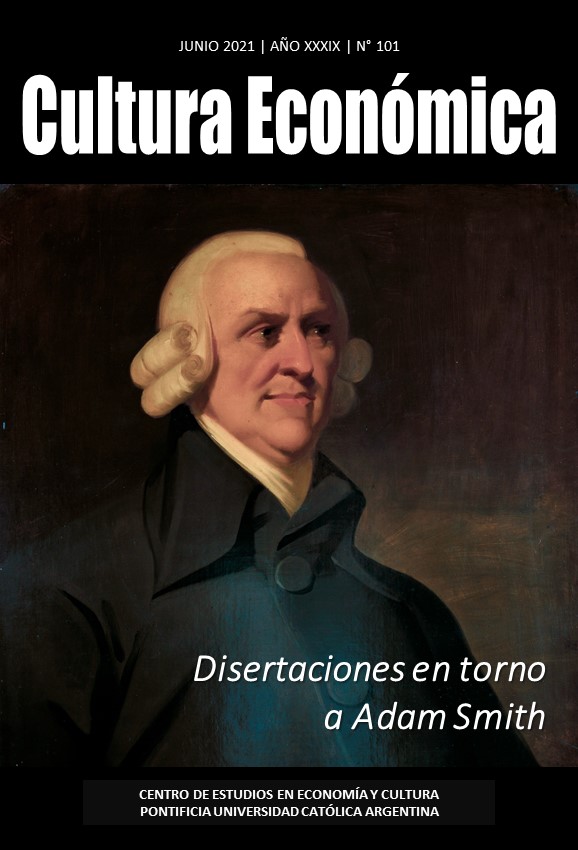Adam Smith: capitalism and its frustrated project of civilization
DOI:
https://doi.org/10.46553/cecon.39.101.2021.p50-66Keywords:
ADAM SMITH, POLITICAL ECONOMY, HISTORY OF ECONOMIC THOUGHT, VALUE, PHILOSOPHY OF ENLIGHTENMENTAbstract
In this paper we aim to address the problem that we interpret as guiding Adam Smith´s work: the question of the historical viability of modern society. To this end, we seek to argue: 1) that both The Theory of Moral Sentiments and The Wealth of Nations show that the full deployment of trade is both necessary and problematic, even seriously dangerous, as the foundation of the new society; 2) that both works discuss, from complementary angles, in what sense and under what conditions modern society is viable. If it is of interest to note that Smith reflected on such a problem, even more relevant is the very solution on which he worked throughout his career, without reaching it: the development of a scientific and philosophical foundation for a theory of modern jurisprudence that would make possible the conception and progress of a well-governed society.Downloads
References
Fitzgibbons, A. (1995). Adam Smith’s system of liberty, wealth, and virtue: The moral and political foundations of “The wealth of nations”. Oxford: Clarendon Press.
Griswold, C. L. (1999). Adam Smith and the virtues of enlightenment. Cambridge: Cambridge University Press.
Hobbes, T. (2004) [1651]. Leviatán o La materia, forma y poder de un estado eclesiástico y civil. Madrid: Alianza.
Hume, D. (2011) [1739]. A treatise of human nature (First publ. in paperback). Oxford: Clarendon Press.
Kant, I. (1985). Filosofía de la historia (1. ed., 4. reimpr). Ciudad de México: Fondo de Cultura Económica.
Levín, P. (1997). El capital tecnológico. Buenos Aires: Catálogos.
Levín, P. (2000). “Political economy at the close of its subject matter”. The Journal of Management and Economics, 4(4), 1-28.
Levín, P. (2003). “Ensayo sobre la Cataláctica”. Revista Nueva Economía, 13(20), 1-21.
Levín, P. (2010). “Esquema de la ciencia económica”. Revista de Economía Política de Buenos Aires, 4(7 y 8), 247–289.
Levín, P., Piqué, M. del P. & Cazenave, A. (2018). “Ensayo sobre el posible aporte de la economía política a la filosofía de la aspiración”. RInERS. Revista de Investigación en Economía y Responsabilidad Social, 1(2), 19-34.
Mandeville, B. de (1982) [1714]. La fábula de las abejas o Los vicios privados hacen la prosperidad pública (1. ed. en español). Ciudad de México: Fondo de Cultura Económica.
Piqué, P. (2017). La obra de Adam Smith en el estudio y en la enseñanza de la historia del pensamiento económico [Tesis doctoral]. Universidad de Buenos Aires.
Rodríguez Braun, C. (2013). Estudio preliminar. En Smith, A. La teoría de los sentimientos morales (pp. 7–35). Madrid: Alianza.
Screpanti, E. & Zamagni, S. (2005). An outline of the history of economic thought (2nd ed. rev. and expanded). Oxford: Oxford University Press.
Smith, A. (2004) [1776]. Investigación sobre la naturaleza y causas de la riqueza de las naciones. Ciudad de México: Fondo de Cultura Económica.
Smith, A. (2013) [1759]. La teoría de los sentimientos morales. Madrid: Alianza.
Downloads
Published
How to Cite
Issue
Section
License













